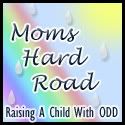By Rick Shaffer
Because the symptoms of ODD tend to mirror common childhood and adolescent behavior, differing primarily in frequency and degree, recognizing and diagnosing the disorder can be difficult. In addition, similar symptoms resulting from other disorders can make the diagnosis more complex. For these reasons, it is important to have the child evaluated by a child psychiatrist, child psychologist or other qualified professional.
“To diagnose ODD, the disruptive behavioral pattern has to be significantly more intense, prolonged and frequent, and cause considerably more dysfunction when compared to children of similar age and developmental level,” Toppelberg explains. “Determining whether the behaviors are significantly different from what would usually be expected in a child at that age can be quite complex and shows how the developmental expertise of a child psychiatrist or child psychologist may be necessary to make an accurate diagnosis and effective recommendations.”
In addition, Toppelberg notes, “problems with the development of language or with learning may also fuel the negativistic and oppositional behavior, making the assessment even more complex.”
If a doctor suspects ODD, he or she will first:
• Talk with the child and with their parents.
• Review the child’s and the family’s history.
• Obtain information about the child’s functioning in school.
• Look for signs of other disorders in the child. (ODD may be accompanied by one or more other psychological disorders, further increasing the difficulty of diagnosis).
A diagnosis of ODD will not be made unless:
• The child displays at least four of the typical behaviors of the disorder.
• These behaviors occur more frequently and have more serious consequences than is typical in children of a similar age.
• The behavior symptoms lead to significant problems in the child’s school, work or social life.
Resource
American Academy of Child and Adolescent Psychiatry – 202-966-7300; www.aacap.org – The academy’s “Facts for Families” series features two items relevant to families interested in ODD. Check out www.aacap.org/publications/factsfam/72.htm and www.aacap.org/publications/factsfam/discplin.htm
Rick Shaffer is an attorney and freelance writer who often writes on health and financial issues.
From www.parenthood.com

